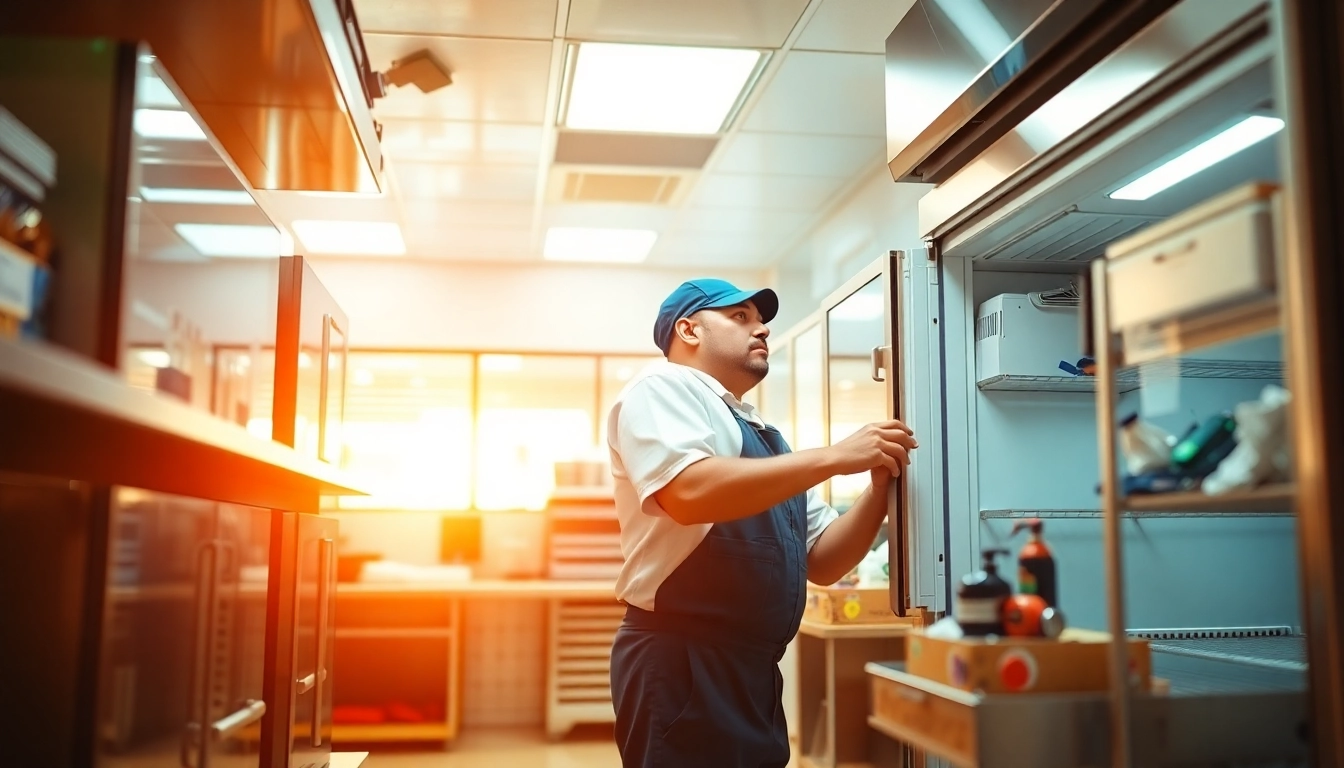Understanding the Importance of Commercial Refrigerator Repair
Why Regular Maintenance is Essential
Commercial refrigerators play a pivotal role in the operation of food services, grocery stores, and other businesses that rely on refrigeration. Regular maintenance not only extends the life of these appliances but also ensures that they operate efficiently. A breakdown can lead to costly losses, with spoiled food and compromised inventory how can businesses risk this? Incorporating regular maintenance checks can identify potential issues before they escalate. For instance, checking the seals or filters can prevent larger repair needs down the line. It can also help in maintaining compliance with health regulations, avoiding costly fines or reputational damage.
Common Issues That Require Professional Attention
Common issues with commercial refrigerators include:
- Temperature Instability: Fluctuations in temperature not only threaten food safety but also indicate underlying problems that need immediate attention.
- Unusual Noises: If a refrigerator starts to make loud or unusual noises, it could be a sign of a failing compressor or fan.
- Leaking Water: Pooling water can indicate blocked drainage or malfunctioning parts, which can lead to electrical hazards or further damage.
- Excessive Frost Build-up: This could signal problems with the defrost system or insulation issues that require specialized repair.
Benefits of Timely Repair Services
Timely repair services can save business owners significant amounts in operational costs and improve overall efficiency. The benefits of prompt repairs include:
- Reduced Downtime: Quick diagnosis and resolution of issues minimize interruptions in operations.
- Cost Efficiency: Addressing minor repairs now can prevent major breakdowns later, saving money in the long run.
- Improved Energy Efficiency: Well-maintained refrigeration systems operate more efficiently, leading to lower energy bills.
- Enhanced Food Safety: Ensuring proper temperatures are maintained through regular maintenance and prompt repair helps meet health standards.
Signs Your Commercial Refrigerator Needs Repair
Unusual Noises and Performance Issues
One of the first signs that something is wrong with your commercial refrigerator is unusual noise. This can include hissing, popping, or grinding sounds. Such noises may indicate a failure in the components like the compressor or fan. Investigating these sounds early on can prevent more severe and costly repairs.
Temperature Fluctuations and Food Safety Risks
Temperature instability poses a significant risk for food safety. A temperature rise can lead to bacteria growth, spoilage, and potentially harmful situations for consumers. If you notice that your refrigerator is not maintaining its set temperature, it’s imperative to contact a professional for commercial refrigerator repair services immediately.
Condensation and Ice Buildup Symptoms
While some condensation is normal, excessive moisture could indicate a problem. If you find that ice is building up excessively inside the refrigerator or freezer compartment, it could mean that your defrost system isn’t working correctly. This might also signal a need for gasket replacement if the doors are not sealing correctly, leading to temperature inequities and inefficient operation.
Choosing a Reliable Commercial Refrigerator Repair Service
Key Qualifications to Look For
When selecting a repair service, consider factors such as licensing, insurance, and technician experience. The technicians should have extensive training and preferably certifications from relevant trade organizations. Warranties on parts and labor are also essential indicators of a reputable service provider.
Questions to Ask Before Hiring a Technician
Before hiring a technician, consider asking the following questions:
- What is your response time for emergency repairs?
- Do you offer a service agreement for maintenance?
- Can you provide references or customer testimonials?
- What brands and models do you service?
- Is there a warranty on the repair work done?
Evaluating Customer Reviews and Testimonials
Customer feedback can provide valuable insights into the reliability of a repair service. Check online platforms and review websites to understand past customers’ experiences. Consistent positive feedback regarding speedy service and quality work is a good sign of a trustworthy business.
Cost Factors in Commercial Refrigerator Repairs
Average Pricing and Estimates
The cost of commercial refrigerator repair can vary widely based on the type of repair needed, the age of the appliance, and the parts required. Most service calls may range from $100 to $200, with repair costs adding an additional $200 to $800 total on average. Complex repairs, such as compressor replacements, can escalate the total to nearly $1,000 or more.
Hidden Costs to Be Aware Of
In addition to the visible costs, consider potential hidden costs associated with parts and service. Always ask for a written estimate that breaks down labor and parts. Some technicians charge a diagnostic fee which may be separate from the actual repair cost.
Saving Money Through Preventive Maintenance
An investment in preventive maintenance can significantly reduce the likelihood of costly emergency repairs. Regular inspection and prompt addressing of minor issues can lead to longer appliance life, enhancing overall cost savings for your business. Scheduling maintenance every six months can be a proactive step in preventing defective equipment.
Best Practices for Commercial Refrigerator Maintenance
Routine Cleaning and Inspections
Establishing a routine cleaning schedule helps in maintaining optimal performance. This includes cleaning the coils, checking filters, and ensuring the drainage holes are clear of debris. Regular inspections of door gaskets and other components ensure durability and efficiency while minimizing the chance of breakdowns.
Proper Usage Tips to Extend Appliance Life
Proper usage practices also play a crucial role in maximizing the lifespan of commercial refrigerators. Avoid overloading units, as this affects airflow and can lead to inefficient cooling. Additionally, ensure that doors are closed promptly to avoid temperature fluctuations.
When to Schedule Professional Maintenance
Businesses should schedule professional maintenance at least biannually. However, depending on the units’ usage and environment, more frequent maintenance may be warranted. Monitoring equipment performance and key indicators, such as noise and temperature retention, will guide you in determining if additional services are necessary.
